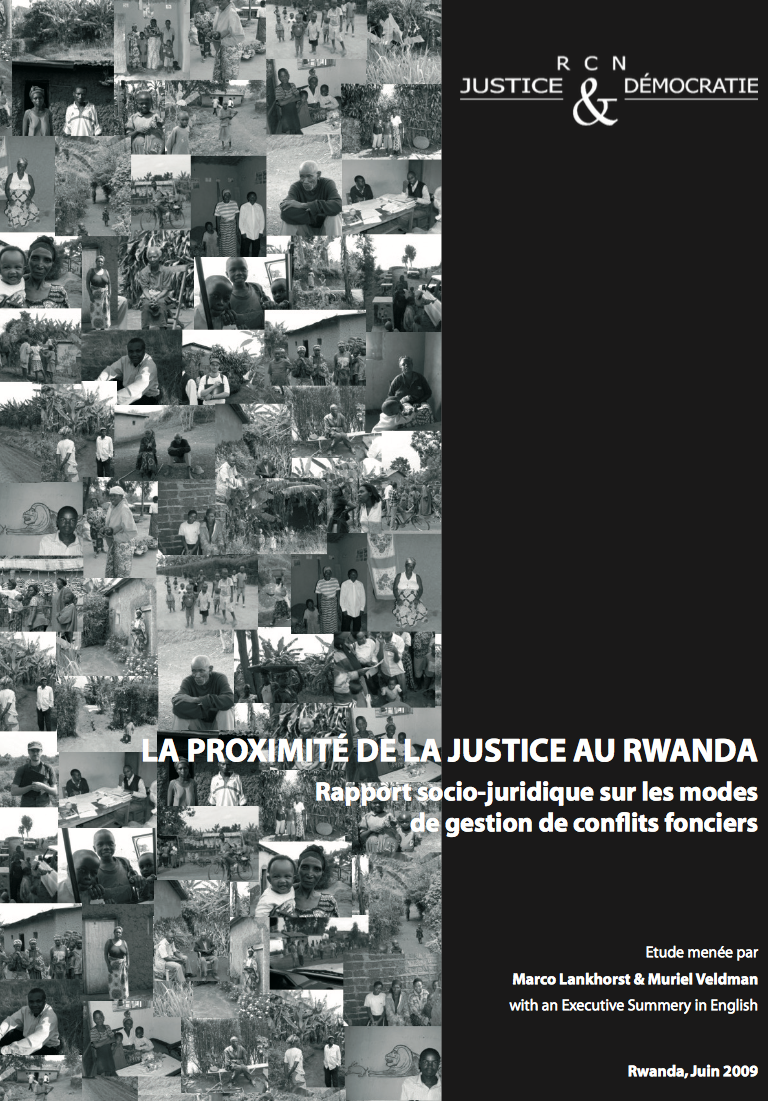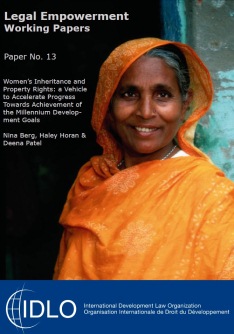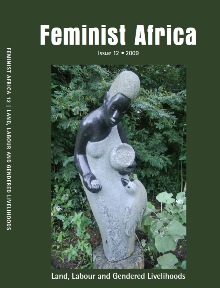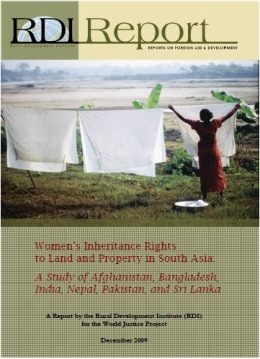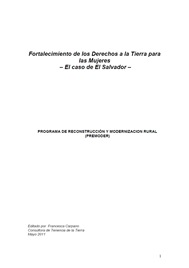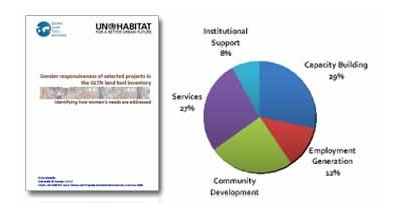La proximité de la justice: Rapport Socio-Juridique sur les Mode de Gestion de Conflits Foncier
Ce rapport, qui s’inscrit dans l’objectif du programme de RCN Justice & De?mocratie «Pour une justice de proximite? », pre?sente les re?sultats d’une e?tude des modes de re?solution de conflits fonciers par les syste?mes judiciaires et pre? judiciaires au Rwanda et propose des mesures pour rapprocher la justice de la population. Deux exemples peuvent servir a? introduire le genre de conflits fonciers typiques au Rwanda et les questions sociales que ces conflits soule?vent.

